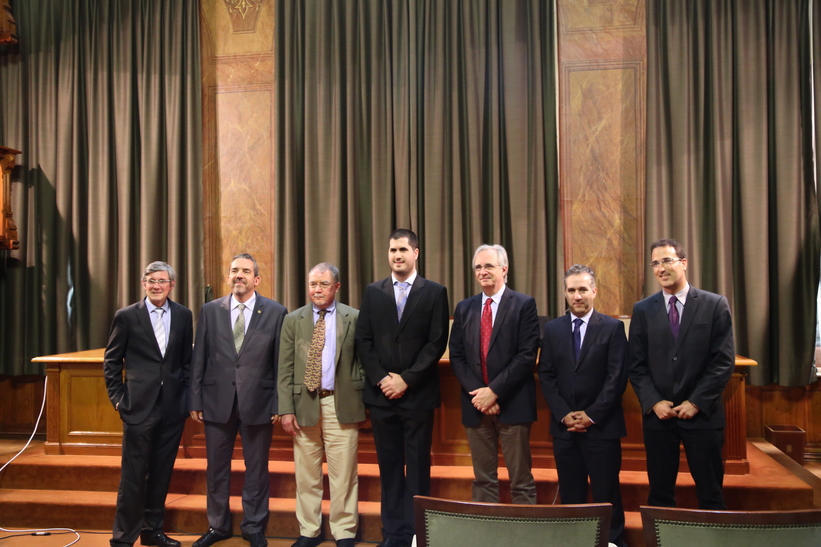
+34 944 139 003 - ext: 3034
Profiles
Transitive and Scalable Federation Model for Remote Laboratories
Directed by: Javier García-Zubia
| Judson Harward | Vocal |
| Carlos Delgado-Kloos | Chair |
| Diego López-de-Ipiña | Secretary |
| Luis Bellido | Vocal |
| Manuel Castro | Vocal |

(From left to right: Javier García-Zubia -PhD advisor-, Manuel Castro -UNED-, Judson Harward -Harvard University-, Pablo Orduña, Carlos Delgado Kloos -UC3M-, Luis Bellido -UPM-, Diego López-de-Ipiña -Deusto-)
Awards
This PhD dissertation was awarded by the IEEE Spanish Chapter of Education Society as best PhD thesis, as well as by the University of Deusto as the best PhD thesis with the Ignacio Ellacuría Award.
Abstract
Education –as everything– is changing, is being digitalized. The Internet has become yet another tool for students. It does not only enhance the availability of educational resources, but also enables the collaboration among institutions and countries, transforming education –both formal and informal–.
In the STEM fields –Science, Technology, Engineering and Mathematics–, students need to access not only contents, but also laboratories. An experiment can be considered as a conversation with Nature: students ask and the Nature answers. The only way to learn the Nature's language is by experimenting, in a traditional way or through the Internet. That said, the design and maintenance of laboratories is expensive and complicated, which slows down their development and use in educational institutions, especially in those countries with limited resources.
In the beginning, and as a solution to the lack of availability, laboratories started being simulated with software tools. With the growth of the Internet, the research community has placed efforts to digitalize these laboratories, making them remote, enabling students to access real equipments through the Internet, where the conversation with Nature goes through the network. Once laboratories are available through the Internet, it is possible to share them with other educational institutions, as any other digitalized resource. Sharing laboratories and experiences between countries and institutions needs a proper technical support: it needs federation protocols that make this process automated.
The focus of this dissertation is to explore and evaluate a new model for scaling up this sharing –enabling a higher number of concurrent users to access equipment distributed among multiple institutions–, and managing more complex scenarios than those described in the literature –re-sharing or subcontracting accesses to laboratories, or distributing them through low cost devices–. Both the federation model and the technical viability have been implemented in the WebLab-Deusto remote laboratory management system, also described in this dissertation.

